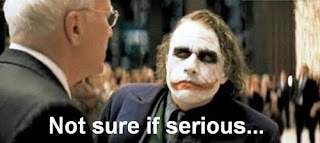Kimura
VIP Member
I'm responsible for a large portfolio of illiquid investments. Our accountants don't think they're worthless.
But if your bank has illiquid assets you think are worth $0, PM me and maybe we can strike a deal.
I was trying to be a wise ass.It didn't work.
Seriously, though, many of the banks I mentioned have a boatload of illiquid assets. Many speculators and buyers aren't exactly lining up to purchase these assets. And there's the derivatives issue, which is problematic as I'm sure you'd agree.
I was trying to be a wise ass. It didn't work.
You're right, you came off as a dumbass, by definition.
Seriously, though, many of the banks I mentioned have a boatload of illiquid assets.
Doesn't make them insolvent.
And there's the derivatives issue, which is problematic as I'm sure you'd agree.
Why is it problematic?
These banks have yet to move the toxic assets hidden in their SIVs back on their books.
They are insolvent. They exist as wards of the state when we really think about it. As a matter of fact, they've been insolvent for many years, carrying these toxic assets around, having had their equity capital wiped out back in 2008, with obligations greater than actual assets, etc. We call them zombie banks for a reason.
Derivatives permit bullshit accounting practices, distort markets, massively increase risk, massively increase leverage and debt ratios, and they dupe people into believing they can actually remove risk from the equation.
Last edited:


